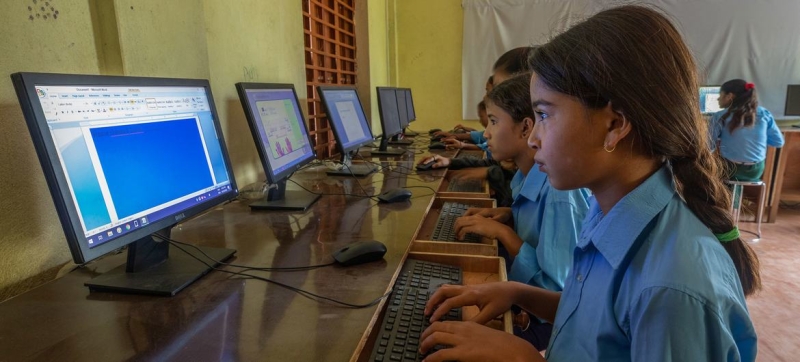
Computer science lesson in Nepal. Top news of the day | Thursday: Haiti, Syria, malaria, girls in ICT UN
The main news of the day in the UN and in the world: the transitional government in Haiti, the impact of regional tensions on the situation in Syria, World Malaria Day, girls and women in the field of information and communication technologies.
The situation in Haiti
The UN welcomes the official launch of the Transitional Presidential Council in Haiti, which will lead the country until elections are held, and calls on the new authorities and all stakeholders to expedite the full implementation of transitional governance arrangements. The UN press secretary stated this today. He said the Secretary-General reiterated his call for the rapid deployment of a multinational mission to Haiti to support the country’s police in addressing the dire security situation. The UN chief also appealed to the international community to provide financial and technical support for the mission.
Security Council on Syria
The Syrian population finds itself in a very difficult situation, UN Special Envoy for Syria Geir Pedersen told members of the Security Council. The envoy noted the difficult conditions facing Syrians, including economic hardship, gender-based violence and arbitrary detention. He stressed the need to de-escalate the regional conflict and respect international law to protect civilians. In particular, a ceasefire in Gaza is a priority.
Malaria vaccine
Benin, Liberia and Sierra Leone have launched a program to widely introduce malaria vaccines to millions of children. This was announced by the World Health Organization on World Malaria Day, which is celebrated on April 25. Eight African countries now offer a vaccine against the disease as part of their childhood immunization programs. Several more countries plan to introduce it next year with the support of the Global Alliance for Vaccines and Immunization (GAVI).
Girls and technology
April 25 is International Girls in ICT Day. The UN chief called for supporting the opportunities of girls in the field of information and communication technologies. He, in particular, noted that women’s access to the Internet is still limited. UNESCO today published a report on how social media affects the well-being of girls. The report’s authors warn that while digital technologies can improve educational opportunities, they also come with risks such as invasion of user privacy and cyberbullying. In addition, UNESCO notes that gender stereotypes are sometimes spread and reinforced on social networks.
